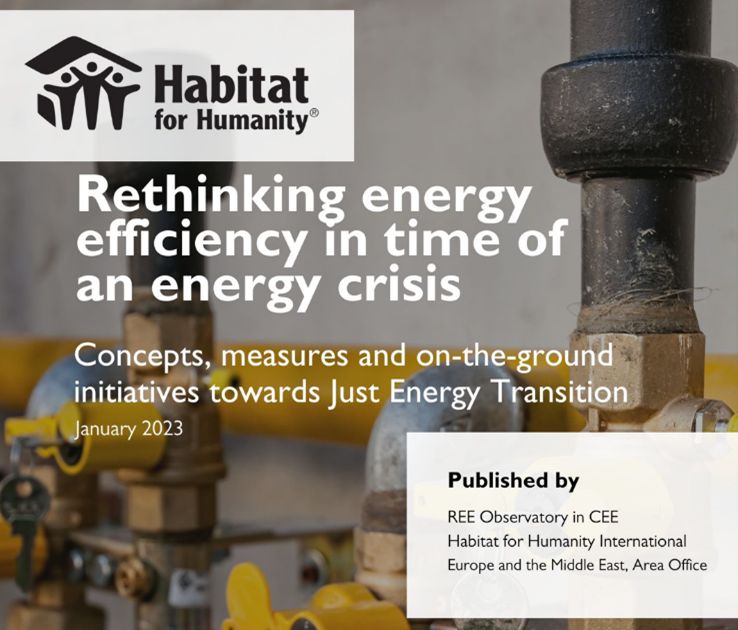[04.01.23] Rethinking energy efficiency in time of an energy crisis: Concepts, measures and on-the-ground initiatives towards Just Energy Transition
Today, Europe is facing an energy, climate, and social crisis. It is hence more urgent than ever to showcase how energy, climate and social policy objectives can be combined. Current policies have proved to be inadequate to deliver the Just Energy Transition. A more ambitious policy framework considering social fairness is needed. HFHI EME dedicates its new publication Rethinking energy efficiency in time of an energy crisis: Concepts, measures and on-the-ground initiatives towards Just Energy Transition to energy sufficiency, which aims to combine energy, climate and social policy objectives through delivering energy services equitably while respecting planetary boundaries.
HFHI EME believes that community-led deep renovations of multi-apartment buildings can mitigate the negative impacts of the energy crisis on vulnerable households while providing a long-term solution towards Just Energy Transition and based on this view, the articles for the publication were collected. We hope that this timely publication will prove a valuable addition to the conversation round the energy crisis and will shed more light on the concept of energy sufficiency, which is still too often an overlooked solution in this ongoing debate.
Publisher’s pick:
Among others, the publication features the article The face of energy poverty today – lessons from five CEE and CIS countries, written by Metropolitan Research Institute, presenting survey results from five former socialist block countries – Bulgaria, Hungary, Lithuania, North Macedonia, and Ukraine. The survey, carried out in 2021, aimed to understand the neglected aspects of energy poverty: understanding how it appears in multi-apartment buildings, what is the most affected demographic group, and what are the main factors determining energy poverty. The results were obtained prior to the energy crisis, thus they could be regarded as a baseline for further inquiries, especially for former Socialist countries that are hit the hardest since they typically lack the welfare regimes to cushion the social and economic shock. The paper relies on the work of the EU Horizon 2020 funded Community Tailored Actions for Energy Poverty Mitigation (ComAct) project, most importantly the Guidebook on the concept of energy poverty and its relevance in the five pilot countries.

